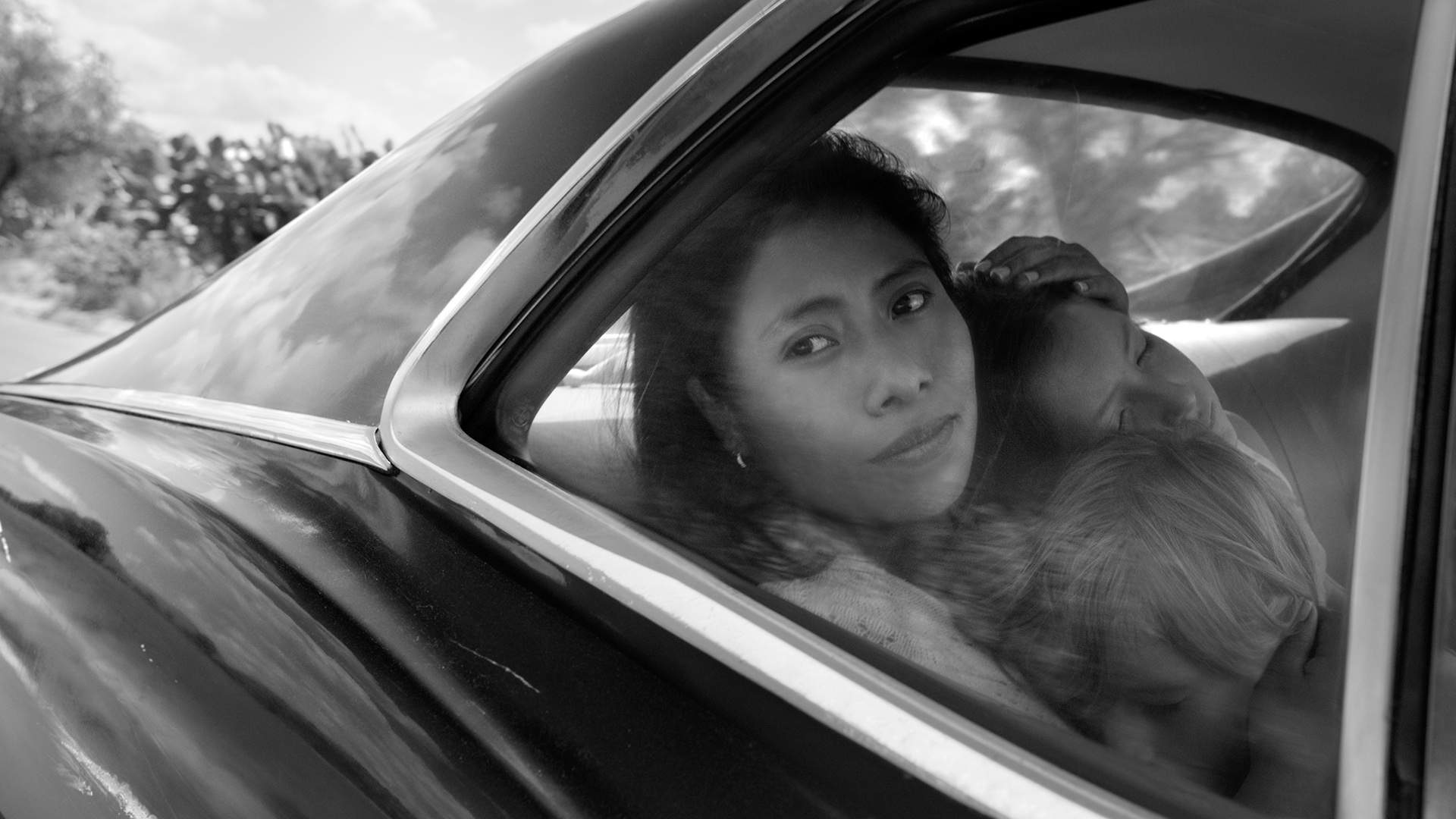Roma
Alfonso Cuarón's award-winning drama spins a gorgeous, deeply felt story of a housekeeper in 1970s Mexico.
Overview
In the darkness of space in Alfonso Cuarón's Gravity, no one could hear a stranded astronaut scream. In the writer-director's follow-up, Roma, no one would hear a maid's cries even if they shared the same room. Domestic worker Cleo (Yalitza Aparicio) attends to the everyday needs of her middle-class employers and their four loving but unruly children, treating them like family. But she's the first to rise in their well-appointed household in Mexico City's Colonia Roma neighbourhood, and the last to sleep. She's the person who both tucks the kids into their beds and scrapes dog excrement from the driveway each day. Cleo is part of the fabric of their lives, but the minutiae of her life is never part of theirs.
That's a domestic servant's plight — indispensable but always an outsider — which Cuarón details with both a loving gaze and a clear-eyed stare. Inspired by his own upbringing in the early 1970s when the film is set, Roma is a tribute to women who often go unseen, as well as an acknowledgement of the realities of their existence. The contrasts keep coming, juxtaposing the privilege of Cleo's employers with her own modest reality, while recognising the comfort of Cleo's position compared to the puddles and shacks of village life. With the era's student protests also weaved into the movie, Roma similarly sees the chasm between widespread societal unrest and those clinging to their own patch of calm.
Most of all, the movie sees Cleo. It spies the Mixtec housekeeper while doctor Antonio (Fernando Grediaga) complains to his wife Sofia (Marina de Tavira) about the state of the house, spotless except for the dog droppings that keep on coming. It observes when the kids call for Cleo's cuddles and snuggle up to her every chance they get. It spots the quick jokes she shares with her best friend Adela (Nancy Garcia), the family's cook, as well as the tiny apartment they share above their employer's sprawling home. And it watches on as she shares a date with Fermín (Jorge Antonio Guerrero), the cousin of Adela's boyfriend — then shares more, and then faces the aftermath.
There's an episodic feel to Roma, which pieces together slices of Cleo's life more than it charts a clear dramatic arc — although the consequences of her tryst with Fermin provide a strong narrative thread. The increasing absence of Antonio, the impact upon Sofia and the ripples that flow through the house all provide another. Cuarón isn't simply paying attention to whatever takes his fancy, of course, but building a portrait: of the city at the time, of complicated lives, and of a woman that, to many eyes, would simply blend in. He's done so before in various fashions, championing the overlooked in Children of Men's dystopian future, in Y Tu Mamá También's coming-of-age road trip, and in his Harry Potter gig, The Prisoner of Azkaban. In focusing on a female medical engineer sent into space, he did the same with Gravity as well.
For all of the highlights on Cuarón's resume, however, Roma sees the director enter another realm. Acting as his own cinematographer, he peers so attentively at his hometown, the era of his upbringing, and at Cleo, that he could be conjuring memories onto the screen. He's not, completely, but his visuals have that feel — and, in each crisp black-and-white frame, they have that look as well. In alternating between luxurious panoramic shots and intimate close-ups, and between slow pans and excited movement, he switches between the broad and the deep, mimicking the way that we think back about our lives. Both types of image overflow with detail, whether showing violence on the streets, wandering through a chaotic but merry party, venturing to the seaside for a holiday, or offering a window into Cleo's soul one tender glance at a time.
Enter Aparicio, a first-time actor who is everywhere in Roma. She's firmly at the story's centre, in a role that recognises an important truth: Cleo, and Indigenous house staff like her, are rarely the centre of anyone's story, a fact that the untrained talent's naturalistic performance only underscores. Indeed, hers is a performance about quiet presence more than overt effort — or, more accurately, about the impact that someone has even when they're usually on the periphery. In the graceful way that Cleo soldiers on through her own crisis, as well as the family's and Mexico's circa 1971, it's a performance that makes you wish that she was always in the spotlight.
https://www.youtube.com/watch?v=fp_i7cnOgbQ





